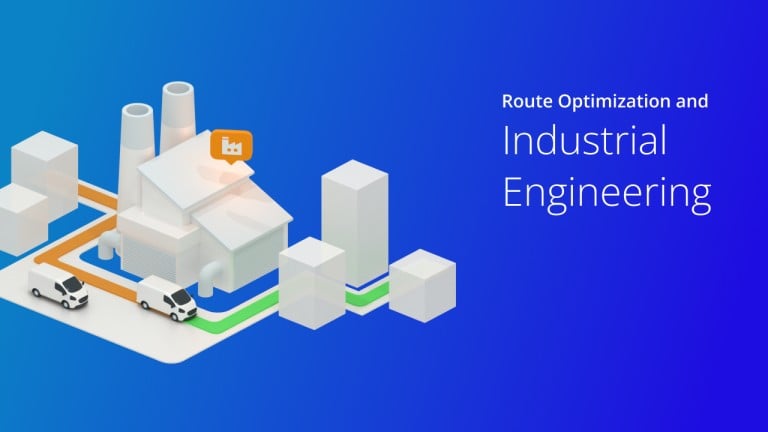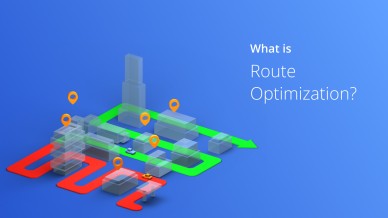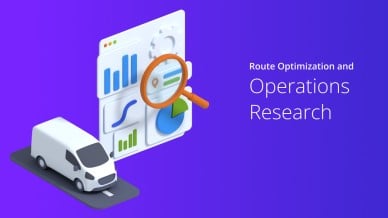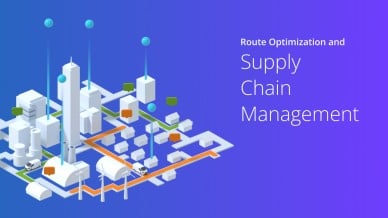In today’s hyper-competitive business environment, industrial engineering is pivotal in driving efficiency, which is critical for success. Companies that leverage industrial engineering principles can reduce costs, increase output, and enhance customer satisfaction. By applying techniques to streamline processes and better allocate resources, these businesses can swiftly adapt to market changes. With rising operational costs and heightened consumer expectations, particularly in logistics and delivery sectors, mastering efficiency through industrial engineering is not just an option—it’s a necessity. Businesses that excel in this area can gain a significant competitive edge by delivering superior value while maintaining agility and sustainability.
Table of Contents
Understanding Industrial Engineering
Industrial engineering is a critical field focused on optimizing complex processes and systems to boost productivity and efficiency across diverse industries. It involves designing, improving, and implementing integrated systems that include people, materials, information, equipment, and energy. By analyzing these elements, industrial engineers aim to streamline operations, reduce waste, and create workflows that exceed organizational goals. Techniques such as process mapping, simulation, data analysis, and ergonomics are employed to develop solutions that enhance performance while maintaining safety standards.
A notable strength of industrial engineering is its application in data-driven route optimization, where engineers refine delivery paths to minimize fuel consumption and improve service reliability, directly impacting customer satisfaction. With methodologies like Kaizen and Six Sigma, the field continually adapts logistics and operations to meet evolving market demands. This systematic approach ensures that resources are used efficiently, providing maximum value and supporting sustainable growth in sectors ranging from manufacturing and logistics to healthcare and services.
Core Focus
Industrial engineering is all about boosting efficiency and productivity across different processes, making businesses run smoother and smarter. It’s like fine-tuning a machine, where everything—from how materials move and information flows to how people and equipment work together—is optimized for better performance. By digging into the details of these processes, industrial engineers pinpoint where things can be improved, cutting out waste and making operations more cost-effective and agile. Whether it’s in manufacturing, healthcare, or other service sectors, the aim is to create processes that flow effortlessly, maximizing output and quality without unnecessary downtime. Focusing on these aspects helps organizations stay on top of their game, meet their goals, and easily outperform the competition.
Key Methods/Tools
In industrial engineering, various methods and tools are employed to optimize processes and systems effectively. Process analysis is fundamental, serving as the starting point for identifying inefficiencies by scrutinizing each step within an operation to enhance overall flow and reduce waste. Ergonomics comes into play by ensuring that human factors are considered, creating work environments that boost safety and productivity while minimizing physical strain.
Work measurement helps determine the optimal time and effort needed for tasks, enabling better workforce management and resource allocation. Simulation tools offer a dynamic way to model and test different scenarios, providing insights into potential improvements before they are implemented. Lastly, quality control ensures that products and services consistently meet the desired standards, using techniques to monitor and maintain high-quality outputs. Together, these methods and tools form a comprehensive toolkit that industrial engineers use to drive efficiency and excellence across various industries.
The Role of Industrial Engineering in Route Optimization
Efficiency and Productivity
Optimizing delivery routes is a central strategy in industrial engineering focused on boosting efficiency and productivity. By meticulously planning the most effective pathways for logistics, companies can drastically reduce travel time and fuel consumption. This lowers operational costs and allows for quicker deliveries, enhancing overall customer satisfaction. Efficient route planning ensures resources are used to their fullest potential, allowing businesses to deliver goods reliably and promptly. The result is a more streamlined operation that saves time and money, offering a competitive edge in industries where speed and cost-efficiency are crucial.
Process Analysis and Improvement
Process analysis and improvement are a core aspect of industrial engineering, which is vital in route optimization. Engineers utilize process mapping and time studies to meticulously evaluate delivery routes, pinpointing points of inefficiency and potential delays. This thorough analysis helps visualize how current logistics networks operate and identify areas for refinement. By eliminating unnecessary steps and streamlining processes, companies can enhance route efficiency, ensuring smoother operations and improved delivery performance. Such meticulous attention to detail allows businesses to fine-tune their logistics for optimal results.
Continuous Improvement
Continuous improvement is fundamental to effective route optimization within industrial engineering. By applying methodologies like Kaizen and Six Sigma, businesses can foster a culture where logistics strategies are continually assessed and refined. These approaches focus on making incremental changes that gradually enhance the performance of delivery systems while reducing variability. Companies can swiftly adapt routes to changing conditions and demands by consistently incorporating feedback and leveraging real-time data. This commitment to ongoing improvement ensures that logistics processes remain agile and effective, sustaining high levels of efficiency and service quality in a dynamic market.
Human Factors and Ergonomics in Route Optimization
Importance of Human-Centric Design
In route optimization, human-centric design is crucial for maximizing driver performance and safety. By focusing on ergonomic improvements, such as adjustable seating, intuitive controls, and clear navigation systems, companies can create a more comfortable and efficient work environment for drivers. This approach boosts driver satisfaction and enhances productivity by allowing drivers to focus on navigating their routes effectively. Moreover, a human-centric design helps reduce the risk of fatigue-related errors, contributing to safer operations and a more reliable delivery service overall. Ensuring that the tools and environment support the driver’s needs is essential for achieving optimal performance in route optimization.
Stress Reduction
Minimizing driver stress is a key consideration in designing efficient delivery routes. Effective strategies include planning routes that avoid congested areas and erratic traffic patterns, which can significantly reduce stress levels for drivers. By leveraging data analytics to predict and circumvent potential delays, companies can plan smoother, more predictable routes that enhance reliability and timeliness. Additionally, incorporating regular feedback mechanisms allows for continuous adjustments to routes, keeping stress to a minimum by addressing drivers’ concerns and preferences. These stress reduction strategies lead to happier, more focused drivers and ensure a more dependable delivery operation, which is fundamental to successful route optimization.
Want To See How Route4Me Can Revolutionize Your Last Mile Operations?

Practical Applications of Route Optimization
Logistics and Supply Chain Management
In logistics and supply chain management, mission-critical route optimization is essential for maximizing resource use and minimizing delays. By optimizing the delivery paths, companies can allocate resources more efficiently, ensuring that goods move through the supply chain swiftly and without unnecessary halts. This reduces transportation costs and increases reliability, allowing businesses to operate smoothly and competently. Moreover, efficient high-volume route planning means fewer delays, which can significantly boost supply chain operations’ overall agility and responsiveness, ultimately enhancing customer satisfaction and minimizing inventory holding costs.
Retail and E-commerce
Business-grade Route optimization software significantly impacts the retail and e-commerce sectors, particularly in improving delivery speed and customer satisfaction. By fine-tuning delivery routes, retailers can ensure that products reach customers faster, often enabling same-day or next-day delivery options. This efficiency meets the growing demand for rapid service and enhances customer experience and loyalty. Quick and reliable deliveries strengthen a retailer’s reputation and competitive positioning in the market, making route optimization a vital strategy for meeting and exceeding customer expectations.
Transportation and Public Services
Route optimization is crucial for enhancing service delivery in transportation and public services. For public transit systems, optimizing routes means increased punctuality and efficiency, directly translating to higher passenger satisfaction. In emergency services, efficient route planning can be the difference between life and death, enabling first responders to reach their destinations more quickly. By leveraging technology to predict and adapt to varying traffic conditions, these sectors can offer improved, more reliable services to the public, showcasing the critical role of route optimization in ensuring effective and timely service delivery.
Overcoming Challenges in Route Optimization
Managing Complexity and Variability
One of the primary challenges in route optimization is managing the complexity and variability inherent in transportation systems. Fluctuating traffic patterns, unpredictable weather conditions, and shifting customer demands can all impact the efficiency of delivery routes. To address these challenges, companies must employ adaptive strategies that allow for flexibility in their logistics planning. Predictive analytics helps anticipate these variabilities, enabling businesses to create contingency plans that minimize disruptions. By maintaining flexible frameworks, businesses can respond swiftly to unexpected changes, ensuring operations continue smoothly despite external pressures.
Technology Integration
Integrating cutting-edge technologies is crucial for enhancing comprehensive route planning and overcoming logistical challenges. Real-time traffic updates provide essential data that help reroute deliveries around congestion, saving time and fuel. Furthermore, machine learning algorithms can analyze vast datasets to predict optimal routes, recognizing patterns and trends that might not be immediately evident. These technologies enable dynamic route adjustment, ensuring efficiency even as conditions change. Through continuous data collection and analysis, technology integration allows for smarter, more reliable route planning that adapts to current conditions seamlessly.
Balancing Human and Technological Factors
While technology plays an instrumental role in route optimization, balancing these advancements with human factors is essential. For drivers, usability is key; therefore, navigation systems and tools must be intuitive and straightforward. This ensures drivers can make the most of the technology without being overwhelmed. Training programs and user-friendly interfaces can empower drivers to utilize technology effectively, enhancing their performance. By focusing on this balance, companies can harness technological benefits while ensuring that their workforce remains engaged, comfortable, and productive on the road.
Future Prospects in Route Optimization
Advances in AI and Machine Learning
Advances in artificial intelligence (AI) and machine learning are set to transform the future of route optimization. These technologies promise smarter and more adaptable routing solutions capable of optimizing paths in real time based on traffic conditions, fuel efficiency, and delivery urgencies. AI algorithms can process vast amounts of data to identify patterns, predict potential disruptions, and suggest optimal routes that adapt as new information becomes available. This capability ensures that logistics operations become increasingly efficient, responsive, and predictive, enhancing reliability and reducing operational costs.
Role of Smart Cities and IoT
Smart cities and the Internet of Things (IoT) play a pivotal role in the future of route optimization. With interconnected devices and infrastructure, vast amounts of real-time data are generated and fed into route optimization systems. Traffic lights, road sensors, and vehicle telemetry can communicate seamlessly with logistics platforms, providing updates on road conditions, traffic flow, and environmental factors. This integration allows for precise route adjustments, improving efficiency and reducing delays. As cities become smarter, the synergy between urban infrastructure and IoT will transform how routes are planned, making them more efficient and sustainable.
Emerging Technologies
Emerging technologies such as autonomous vehicles are set to revolutionize the logistics landscape. These vehicles can navigate optimized routes with minimal human intervention, reducing errors and increasing efficiency. Autonomous vehicles can operate continuously, without the constraints of human drivers, potentially lowering labor costs and improving safety by minimizing human-related errors. As this technology advances, it promises to further enhance the logistics sector by enabling more predictable and reliable deliveries, thereby transforming how goods are transported in the future. This shift holds the potential to redefine logistics strategies, with route optimization at the core of autonomous operations.
Frequently Asked Questions (FAQs) about Industrial Engineering
Who are the key innovators in route optimization technology?
What is Industrial Engineering and How Does it Relate to Route Optimization?
Why is Route Optimization Important in Industrial Engineering?
How Do Industrial Engineers Incorporate Constraints into Route Optimization?
What Role Does Data Analysis Play in Route Optimization within Industrial Engineering?
How Can Route Optimization Enhance Sustainability in Industrial Engineering?
Conclusion
Industrial engineering is instrumental in dramatically improving business efficiency through effective route optimization. By reducing travel time and fuel consumption, enhancing process analysis, and fostering continuous improvement, businesses can optimize their logistics operations to be more cost-effective and reliable. The integration of smart technologies—such as AI, machine learning, and IoT—along with a human-centric approach, ensures that companies remain agile and competitive in today’s fast-paced market. Embracing these advanced solutions streamlines operations and enhances driver performance and customer satisfaction. As businesses look to the future, prioritizing the synergy between technology and human elements will provide a crucial competitive edge, paving the way for sustained growth and success.



